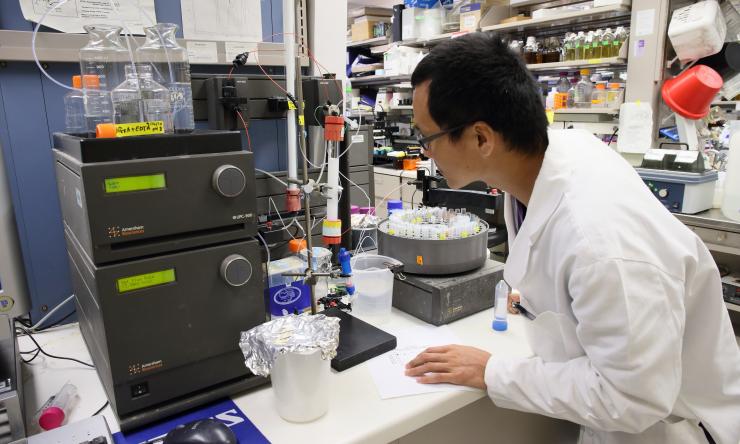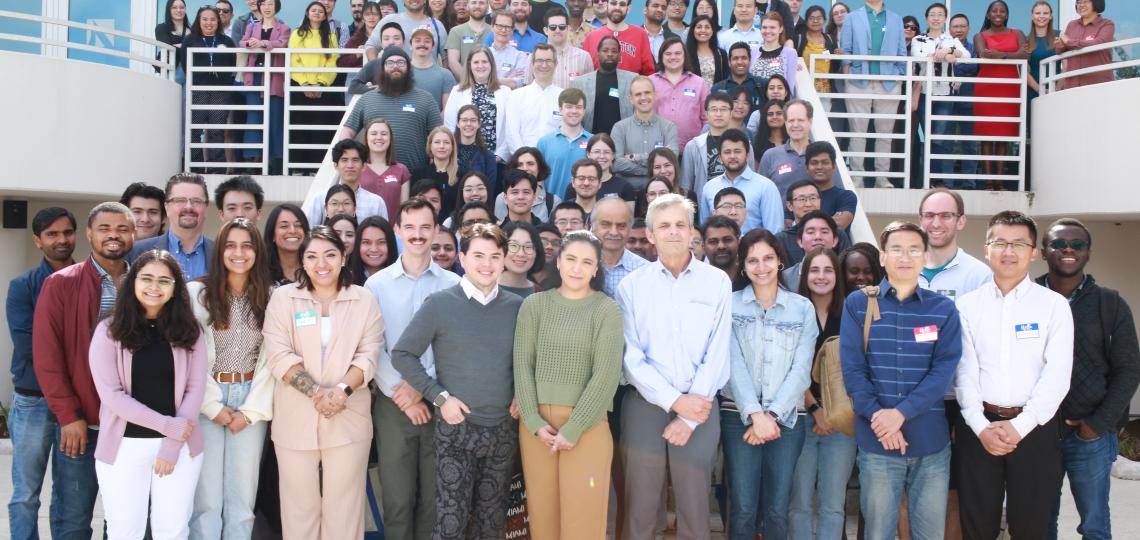
Biochemistry and Molecular Pharmacology Seminar Series
During the academic year, the department hosts seminars relevant to modern pharmacology, chemical biology, drug discovery and drug delivery. Unless otherwise noted, seminars are at 4 p.m. in room N315.
| Date | Speaker |
| Thursday, Nov. 14, 2024 | Schoolar Lecture: Brian Shoichet |
| Thursday, Jan. 16, 2025 | Denise Okafor |
| Thursday, Jan. 23, 2025 | Charlie Brooks |
| Thursday, Jan. 30, 2025 | Jessie Zhang |
| Thursday, March 27, 2025 | Catherine Drennan |
| Thursday, April 3, 2025 | Wenjun Zhang |
| Thursday, April 10, 2025 | David Spector |
| Thursday, April 17, 2025 | Rohit Pappu |
| Thursday, April 24, 2025 | McLean Lectures: Eva Nogales and Venki Ramakrishnan |
Verna and Marrs McLean Lectures in Biochemistry
The Verna and Marrs McLean Lecture Series was inaugurated in 1972 by Salih J. Wakil, Distinguished Service Professor and Chairman Emeritus, in honor of an outstanding Texas family for their generous support of the department. Verna and Marrs McLean shared a philosophy of civic and humanitarian responsibility and a keen commitment to education. Although they were personally generous and supported many philanthropic causes, the McLeans believed that their greatest contribution was to set an example that encouraged others to make equally strong commitments. This tradition has been maintained by their children and grandchildren, as exemplified by the endowment of the Ruth McLean Bowman Bowers Professorship, which supports a faculty member in the department, as well as the establishment of the Ruth McLean Bowman Bowers “Excellence in Research” Award. This endowed lecture series was inaugurated in 1972 in honor of an outstanding Texas family for their generous support of the department.
We are pleased to announce our 2025 McLean Lecturers, Dr. Eva Nogales, Distinguished Professorship in Molecular and Cell Biology at UC Berkely as well as a Faculty Scientist appointment at LBNL and a Howard Hughes Investigator, and Nobel Laureate Dr. Venki Ramakrishnan, Group Leader at the Medical Research Council (MRC), Laboratory of Molecular Biology (LMB), Cambridge, UK
This year, the 2025 Verna and Marrs McLean Lectures in Biochemistry will take place at 2 p.m. on April 24, 2025, in Cullen Auditorium.
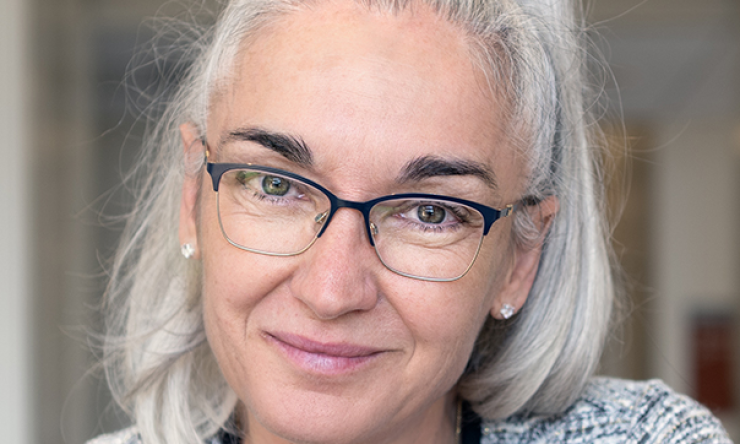
Eva Nogales, Ph.D.
Dr. Eva Nogales is a renowned structural biologist, holding a Distinguished Professorship in Molecular and Cell Biology at UC Berkely as well as a Faculty Scientist appointment at LBNL. While she has made diverse contributions to our knowledge of eukaryotic transcription initiation, CRISPR-Cas9, and telomerase, her best known scientific contributions are to the structure and function of tubulin and microtubules. These first high resolution structures showing how microtubules assembled at high resolution also provided insights into how Taxol, a prominent cancer treatment, acted to stabilize microtubules.
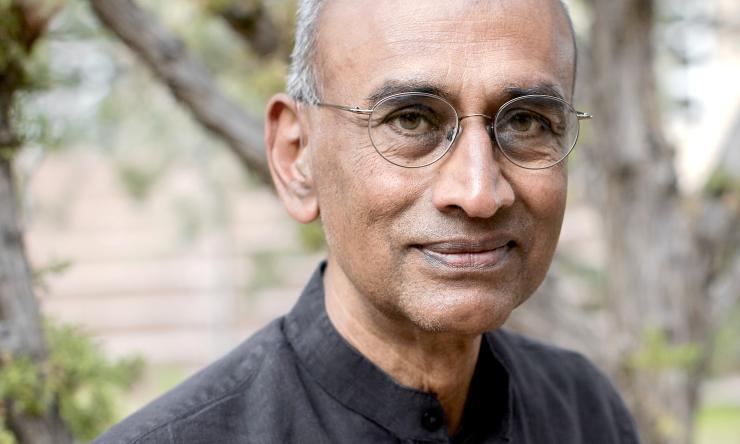
Nobel Laureate Venki Ramakrishnan, Ph. D.
Dr. Venkatraman "Venki" Ramakrishnan is a preeminent molecular biologist renowned for his pioneering research on the structure and function of the ribosome. His groundbreaking work in elucidating ribosome structure using X-ray crystallography and complementary techniques earned him the 2009 Nobel Prize in Chemistry. This remarkable research has been instrumental in advancing our understanding of protein synthesis, antibiotic resistance, and the fundamental mechanisms of life at the molecular level. He is also an acclaimed author of two books: Gene Machine: The Race to Decipher the Secrets of the Ribosome, a fascinating personal account of his scientific journey to uncover the ribosome's structure, and Why We Die: The New Science of Aging and the Quest for Immortality, which explores recent research in the science of aging.
The Schoolar Lecture in Psychopharmacology
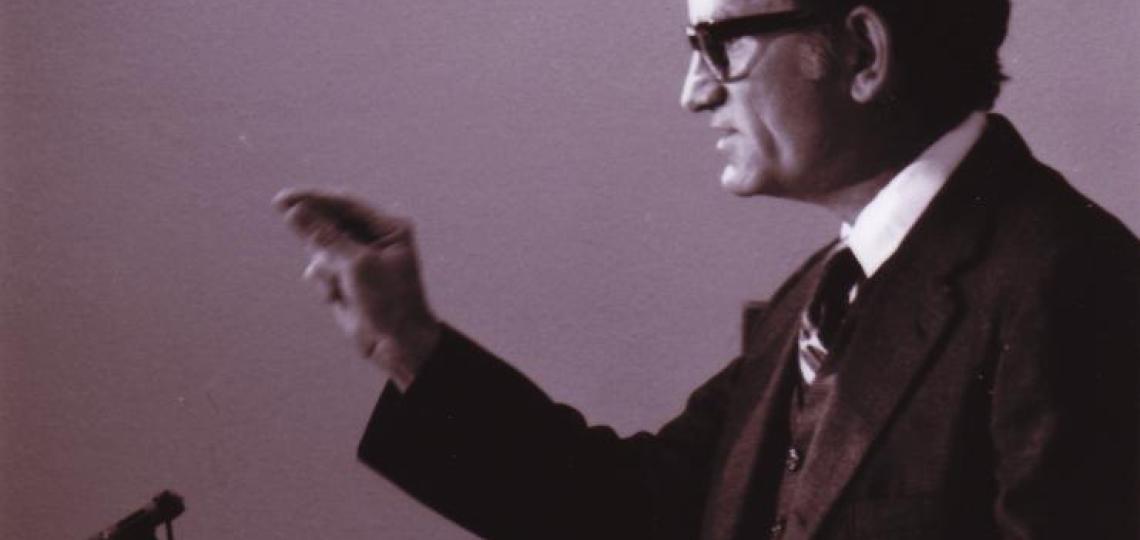
This annual endowed lectureship honors Professor Joseph Schoolar M.D., Ph.D. (1928-2013). He was professor of Pharmacology and Psychiatry at Baylor College of Medicine. He was born and grew up in the Mississippi Delta. At 17 he joined the U.S. Army and was assigned to Clemson College as an engineering student. He was then transferred to the Army Japanese Language School at the University of Minnesota. After completing his training at the University of Minnesota, he served in General Douglas MacArthur’s Headquarters.
Upon his discharge from the Army, he entered the University of Tennessee, receiving his AB in 1950 and MS (Cell Physiology) in 1952. His research for the master’s degree involved the effects of x-radiation on living tissue, particularly the central nervous system. He then joined the laboratory of Dr. John Rust in Oak Ridge, Tenn., working on the effects of ionizing radiation on living systems, again emphasizing the CNS.
In 1954, he moved to the University of Chicago as a graduate student under Dr. Lloyd Roth. His dissertation focus was the blood-brain barrier, and with Dr. Charles Barlow, he developed an autoradiographic technique for use in a variety of studies on the brain, chiefly drug distribution and cerebral blood flow. He was awarded a Doctorate of Philosophy degree in Pharmacology in 1957, and a Doctorate of Medicine in 1960.
After a general rotation internship at the University of Chicago, Dr. Schoolar moved to Baylor College of Medicine for residency training in psychiatry. He then joined the staff of the Texas Research Institute of Mental Sciences as well as the Baylor faculty, the latter jointly in the Departments of Pharmacology and Psychiatry. His work has been in research, training, and clinical practice in psychopharmacology and psychiatry.
We are pleased to announce our 2024 Schoolar Lecturer, Dr. Brian Shoichet, Professor of Pharmaceutical Chemistry at the University of California, San Francisco.
The 2024 Schoolar Lecture will take place at 4 p.m. on Nov. 14, 2024, in Alkek Auditorium N315.
More information can be found on the Schoolar Lecture page.
Annual Department Research Conference
Each year, the Department holds a research conference. The retreat is a blend of scientific and social activities.
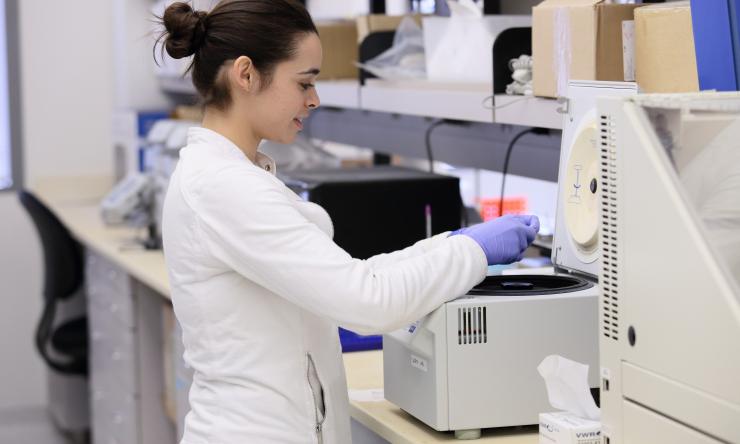
Dr. Shoichet works to discover chemical reagents that can illuminate biological problems. He is a leader in the area of structure-based ligand discovery wherein protein structures are exploited to predict small molecule ligands as potential therapeutic leads. His laboratory has developed computational methods for ligand discovery and applied these to G-Protein Coupled Receptors (GPCRs), which are the largest family of signaling receptors in humans.
Research
Learn about our research with in the Department of Biochemistry and Molecular Pharmacology.








